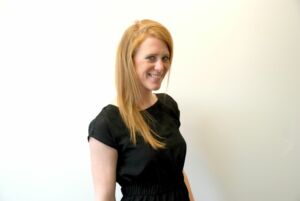Opinion
Dating the Danes | No laughing matter
This article is more than 12 years old.

Don’t get me wrong. I’ve met some hilarious Danish men – I work with two of the funniest in the country. But there will always be a small rift where we just don’t ‘get’ each other.
Now I’m no comedian, but I do feel like my humour is often lost on Danish men, particularly when I ‘take the micky’ or gently ‘poke fun’.
Where I’m from, a bit of a jibe here or there is considered quite flirty. In fact, it’s all part of the courtship rituals. In Denmark though, where many Danish men take themselves pretty damn seriously, this can cause problems.
Last weekend a guy told me the following: “I’m actually off surfing in Hawaii for the next few months, and then I’ll head to Austria to be a ski instructor − a combination of riding the waves and the mountains.”
With a smile in my eye, I responded with: “Man, it must be so hard to be awesome at everything.”
He didn’t get it. In fact he didn’t even know how to respond.
In New Zealand if someone throws you a jibe like that, you play along. And with the ferocity that Danes approach the Jante Law, I thought they’d be all about taking themselves down a peg or two. But alas.
What he, like most men here don’t understand, is that by taking themselves too seriously, they’re actually turning women off.
It reminded me of the time I hosted a julefrokost where the main event of the night was a ‘roast’. One hasty exit from two guests and three apologies later, I concluded that for future Christmas parties, we’ll steer away from the ‘let’s make fun of each other’ theme.
Now Danish men would also say they’re good at sarcasm and I agree … to an extent. Being the Antipodean that I am, I am a harsh critic of this, but rightfully so. Some say sarcasm is the lowest form of humour. I disagree. A drop of sarcasm at the right moment is like a drop of rain in the desert. Both needed and appreciated.
I’ll never forget the night when a guy told me he’d just moved from Herlev to Hvid-ovre.
“Woa,” I said. “Don’t move too close to the inner city,” to which a rather glazed look came over his face and he commented: “Well I haven’t really.”
It was a face-palm moment.
About










































